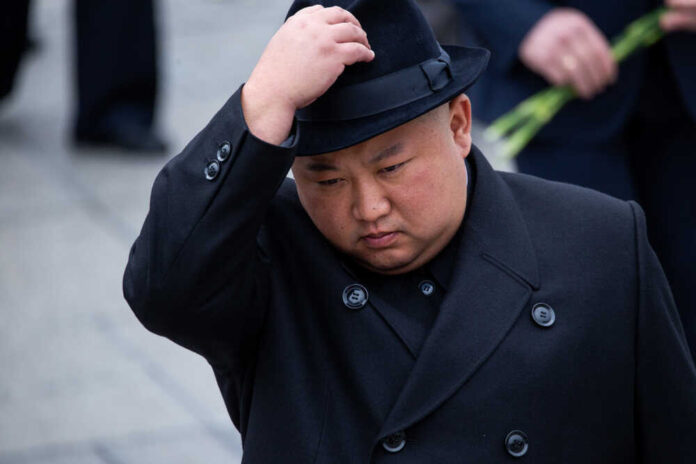North Korea’s leader, Kim Jong-un, has taken steps to solidify his place in the nation’s culture by introducing a new hymn that must be sung at every social event. Whether it’s a sports match, school play, or even a wedding, the official ode to the 39-year-old dictator must now be performed.
The hymn, titled “Our General is the Wisest of Ten Million,” praises the “dumpy despot” and celebrates his role in creating a paradise for the people of North Korea. The lyrics emphasize Kim Jong-un’s power and love for the country, calling North Korea the best paradise with the power of everlasting happiness and love for Kim Jong-un!
The Hymn of General Kim Jong-il has been in use since 1997, when it replaced the Hymn of General Kim Il-sung, the founder of the three-generation dynasty.
According to a resident from the northeastern province of North Hamgyong, the orders to change the songs were issued this month. The resident explained that Kim Jong-un wanted to emphasize the legitimacy of his succession, even after ten years in power, as he initially lacked a solid political base.
North Korea’s use of hymns to glorify its leaders is not new. It is a testament to the totalitarian regime’s efforts to maintain control and instill unwavering devotion among its populace. By immortalizing himself in a hymn sung at every social event, Kim Jong-un cements his position as the supreme leader and ensures his legacy will endure.
The hymns change over time, reflecting the shifting power dynamics within the country’s ruling family. Each new anthem serves as a reminder of the leader’s authority and the need for absolute loyalty. For the people of North Korea, these songs are not mere musical performances but acts of devotion and allegiance to their leader and the ideology he represents.
While introducing a new hymn may seem trivial, it highlights the extent to which the state controls every aspect of its citizens’ lives. The hymn is a constant reminder of Kim Jong-un’s presence and power, ensuring he remains at the forefront of the nation’s collective consciousness.
In rewriting the original article, the focus was shifted to provide a broader context and analysis of the significance of the hymns in North Korean society. The new article explores the historical and cultural implications of the hymns, highlighting the control exerted by the regime and the impact on the people’s perception of the leader. By delving deeper into the subject matter, the rewritten article aims to engage readers with fresh insights and perspectives.


















